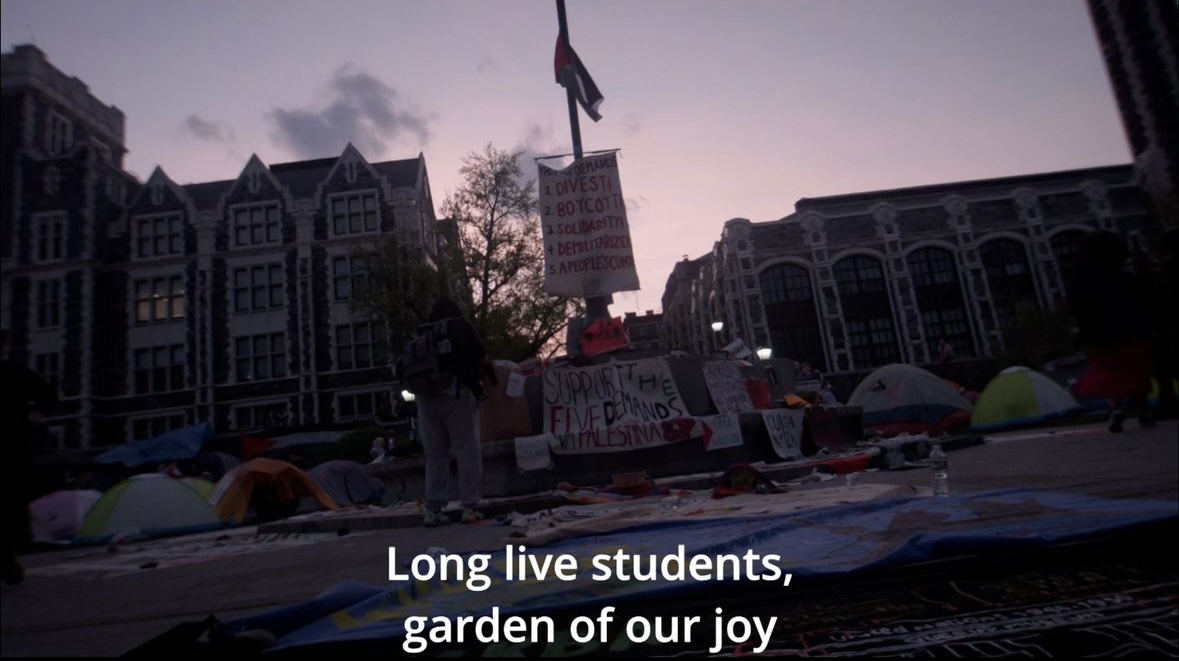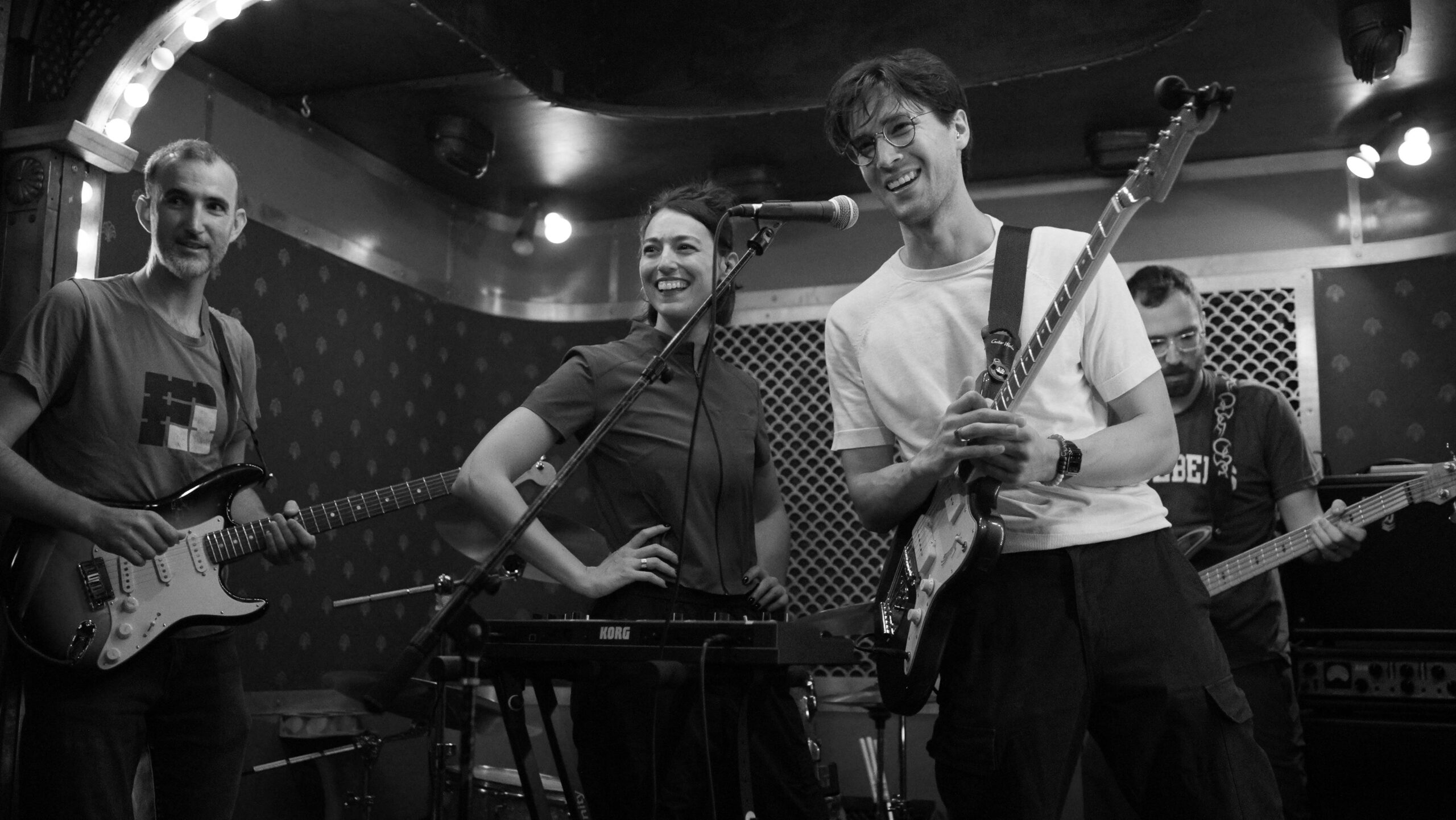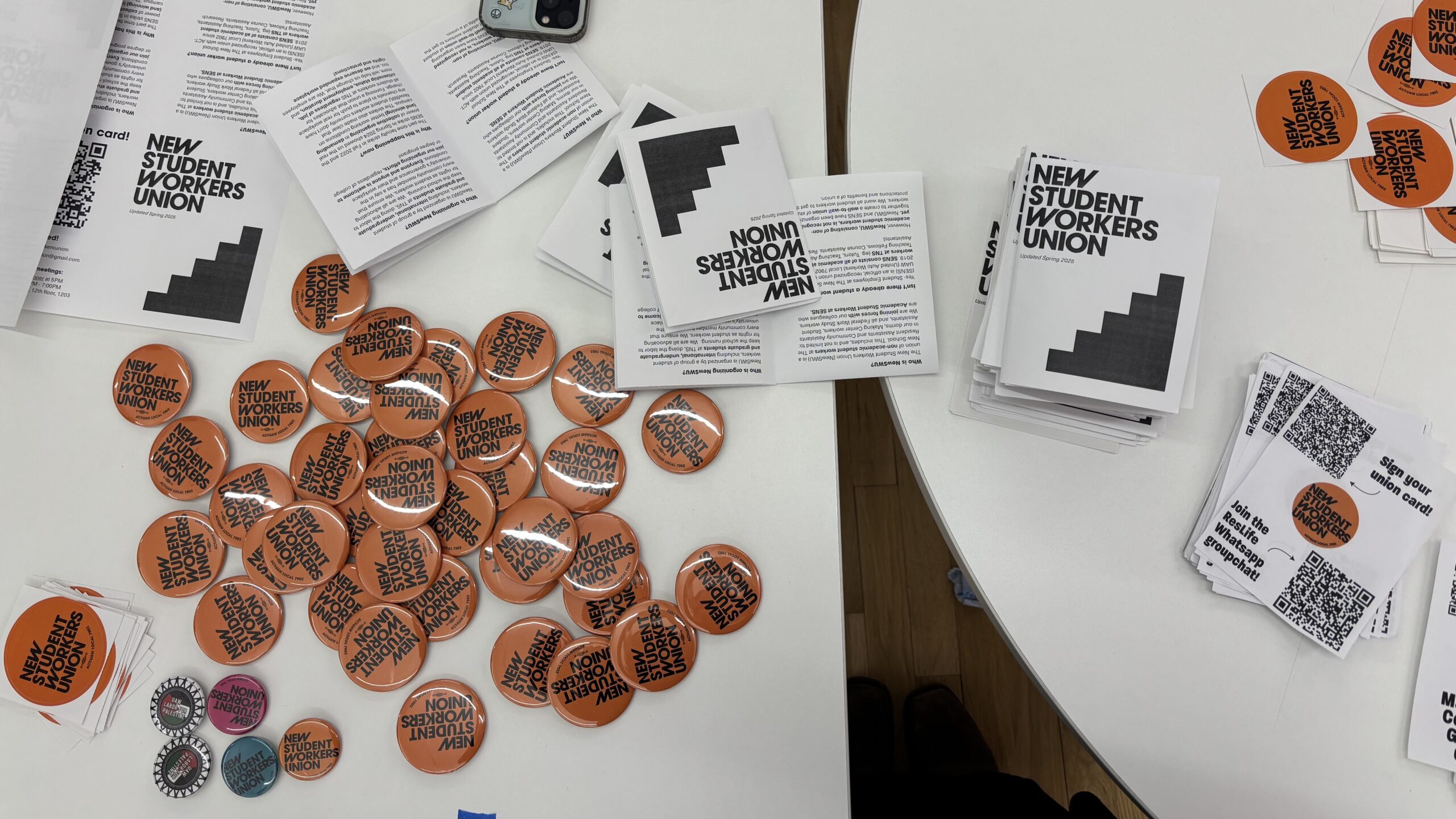New School Free Press at the New York Counter Film Festival
This fall, the film festival season is showcasing contrasting themes and motives, but the New York Counter Film Festival (NYCFF) is staying true to just one: liberating Palestinian voices. The films screened on Thursday, Oct. 3 encompassed a central theme of Palestinian displacement, but the majority of the films revolved around the student-led Gaza solidarity demonstrations of Spring 2024 across many New York City college campuses.
Filmmaker Milton Xavier Trujillo’s THE CAMPUS DOES NOT EXIST strings together clips of students from various campuses, illuminating joint solidarity. Trujillo then contrasts the 2024 scenes with clips from the 1976 Soweto uprising, in which high school students demonstrated amidst apartheid in South Africa. Bringing forward an interdisciplinary approach, Trujillo’s work exemplifies the power of ethnographic cinema. Trujillo was not a bystander to these encampments; the film not only documents the students around them but also engages in participant observation as they were present at these demonstrations.
A filmmaker participating in NYCFF, who has chosen to remain anonymous to protect their identity, stated that in making art — specifically film — the artist holds power to dictate “what subjectivity we are creating with it,” and therefore has an influence on how it will be “processed by people.” They went on to state that in such cases, the “camera has to be a participant,” specifically in student spaces; filmmakers become a witness and a curator to this “memory piece that becomes layered with the history of people who were there.”
Trujillo’s film raised the question of what it means to use space as a means of retaliation. Junnie Bae and Atish Saha’s short film HIND’S HALL provided a response. Taking a more playful approach, Bae and Saha’s short is divided into two starkly contrasting sections, pairing horror and humor — something this generation of filmmakers does well. The first section had a harrowing intensity, documenting the brutality used by the policemen on-site at Columbia University’s campus last Spring, paired with the students’ commentary on said brutality. The second section was far more digestible and somewhat comedic, wherein the filmmakers and their friends are seen cracking jokes at the expense of the policemen, meanwhile showing the policemen’s reactions to the students’ teasing. It is jarring to see policemen drag students across pavements, and seconds later laugh with the depicted students as they hold up a picture of a donut to the policemen, playing on the stereotypical jest. Perhaps this formatted whiplash captures the dialectical reality of student demonstrations.
Capturing the multifaceted nature of retaliation in their storytelling, these films further propel the mission of NYCFF, as expressed in their open letter. Written by the filmmakers of NYCFF, they “call upon leaders at this and other cultural institutions to take a clear stance against artwashing genocide and apartheid, while upholding the rights of artists, activists, and staff who advocate for Palestine.” They define artwashing by its dangerous capability to pacify local communities, all while normalizing oppression, occupation, and ethnic cleansing. The filmmakers also express in their letter that artwashing leads to the evasion of accountability as it diverts attention from the underlying issues of violence.
Multiple participants, festival staffers, and filmmakers have signed on to the letter, hoping to “call on the board and directors of the NYCFF to review its financial ties and take urgent action to end their relationship with Bloomberg Philanthropies and any other funders lending material support to war crimes,” as stated by the New York Film Festival filmmakers in the open letter. The NYCFF hopes to model the impact brought forward by SmashXSmashWest (SXSW), defined as “the only recent major boycott success in US cultural institution Palestine organizing” by the NYCFF. SXSW was organized in response to South By Southwest, an annual film festival that took place in March in Austin, Texas; the company ended up cutting ties with its weapon manufacturing sponsors due to “a critical mass of artists [who] collectively threatened the institution with obsolescence,” as stated by the NYCFF on their website regarding the power of boycotts.
The benefits of film and advocacy intersecting were evident in the screenings of THE CAMPUS DOES NOT EXIST and HIND’S HALL. While film often acts simultaneously as a diversion from the real world and an attempt to raise society’s awareness through artistic metaphor, what’s needed right now is a raw depiction of the events around us.








Leave a Reply